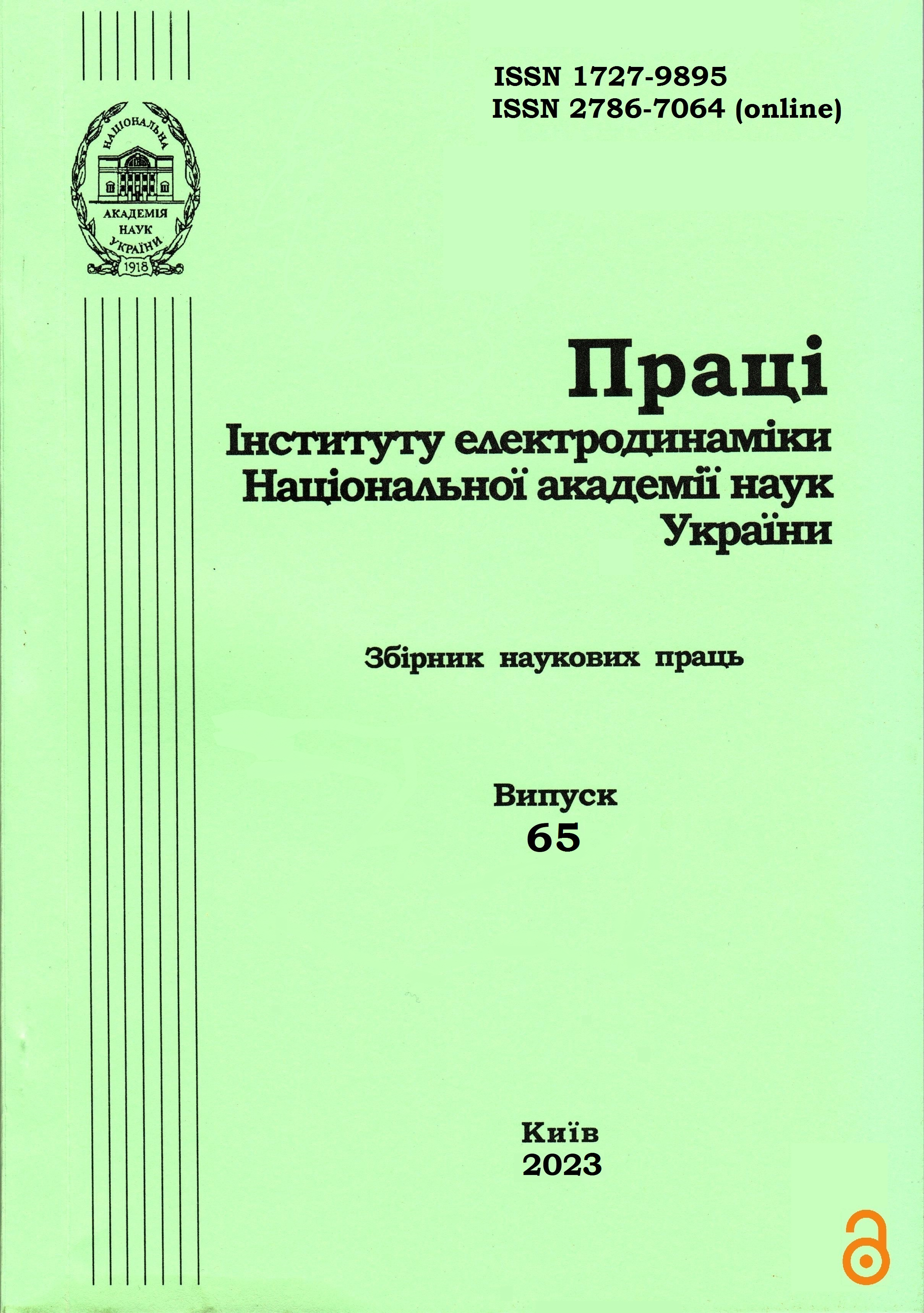Abstract
This work presents a new approach to determining energy indicators, such as specific fuel consumption and the energy efficiency ratio of a power generating plant. The essence of the new method is to determine the instantaneous power of the installation followed by data processing through integration. The use of this method made it possible to establish the dependence of specific energy indicators on the load level of the generating plant. The established distribution allows you to determine the optimal parameters of the experimental installation and consumption at different load levels. The highest specific fuel energy consumption is observed (1189-1297 g/(kW⋅h) and 962-1147 g/(kW⋅h)) at the lowest and heaviest load with different types of fuel. Experimental data confirmed that fuel without ethanol impurities allows generating a larger amount of electrical energy, which is advisable to use when greater needs arise.. Bibl 8. Fig. 2
References
Bilodid V.D., Taranets K.V. Small energy and its importance in regional systems of the future. Problemy zahalnoi enerhetyky. 2008. No 18. Pp. 40–47. (Ukr)
Ermilov S. Energy strategy of Ukraine for the period until 2030: problematic issues of content and implementation. Dzerkalo tyzhnia. 2006. No 20. P. 12. (Ukr)
Denysiuk S., Zaichenko S., Opryshko V., Derevianko D. (2021) Assessment of consumers power consumption optimization based on demand side management. Eureka: Physics and Engineering. 2021. No 2. Pp. 19–31. DOI: https://doi.org/10.21303/2461-4262.2021.001689
Zaichenko S., Shevchuk S., Opryshko V., Pryadko S., Halem A., Adjebi A. (2020, October). Determination of autonomous electrical energy source technical condition based on an internal combustion engine. In 2020 IEEE KhPI Week on Advanced Technology (KhPIWeek). 2020. Pp. 305–308. DOI: https://doi.org/10.1109/KhPIWeek51551.2020.9250074
Zaichenko S., Shevchuk S., Opryshko V., Pryadko S., Halem A. Autonomous electric power source energy efficiency improvement by internal combustion engine gases distribution control. In 2020 IEEE 7th International Conference on Energy Smart Systems (ESS). 2020. Pp. 262–265. DOI: https://doi.org/10.1109/ESS50319.2020.9160085
Irimescu A., Vasiu G., Tordai G. T. Performance and emissions of a small scale generator powered by a spark ignition engine with adaptive fuel injection control. Applied energy. 2014. No 121. Pp. 196–206. DOI: https://doi.org/10.1016/j.apenergy.2014.01.078
Rebai Mohamed, et al. Low-Emission Maximum-Efficiency Tracking of an Intelligent Bi-Fuel Hydrogen–Gasoline Generator for HEV Applications. IEEE Transactions on Vehicular Technology 67.10. 2018. Pp. 9303–9311. DOI: https://doi.org/10.1109/TVT.2018.2861902
Onishchenko D.O., Pankratov S.A., Zotov A.A., Osipkov A.S., Poshekhonov R.A. Study of influence of hydraulic thermo-electric generator resistance on gasoline engine efficiency. International journal of applied engineering research. 2017. No 12(5). Pp. 721–727.

This work is licensed under a Creative Commons Attribution-NonCommercial-NoDerivatives 4.0 International License.
Copyright (c) 2023 S. Zaichenko, R. Kulish




